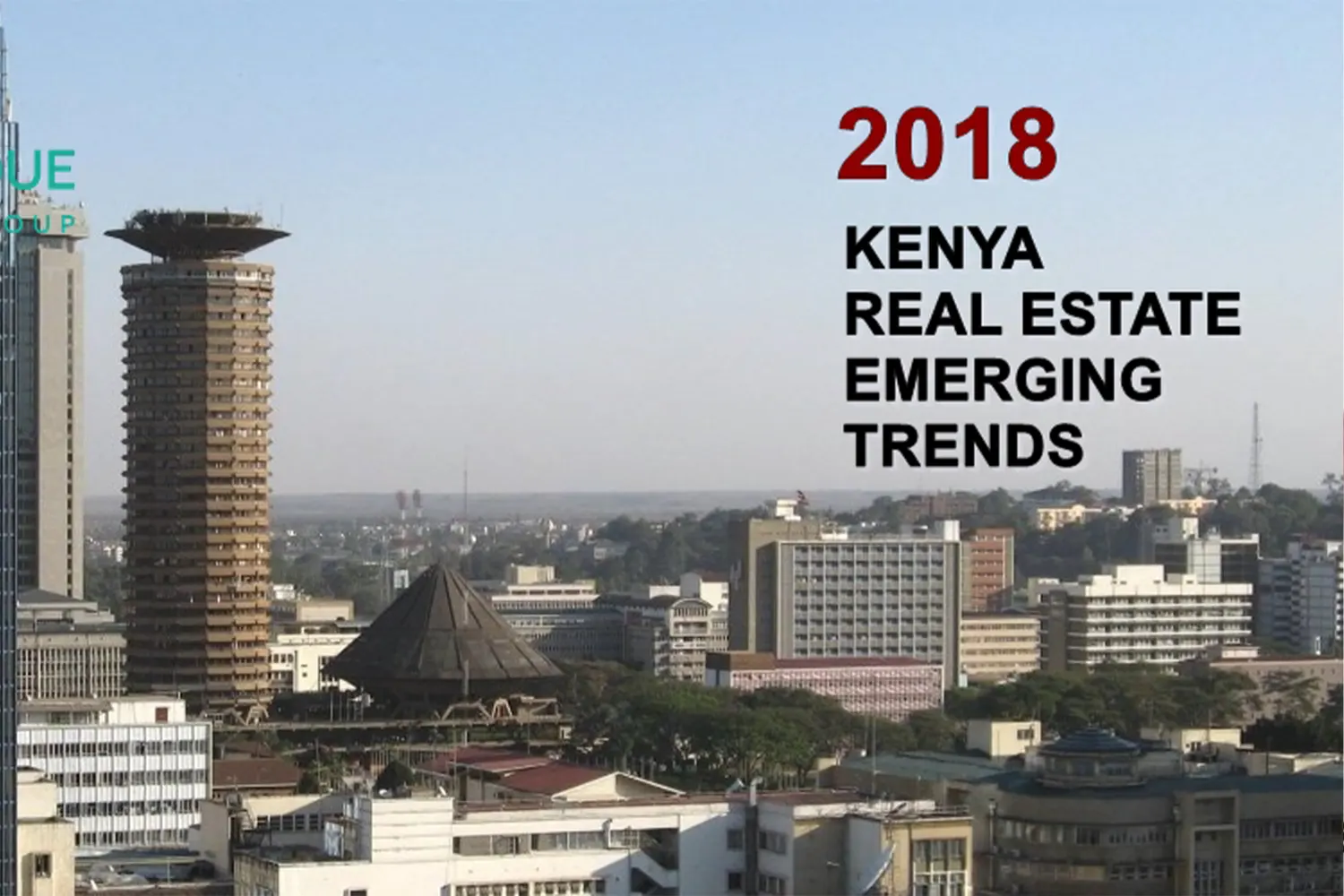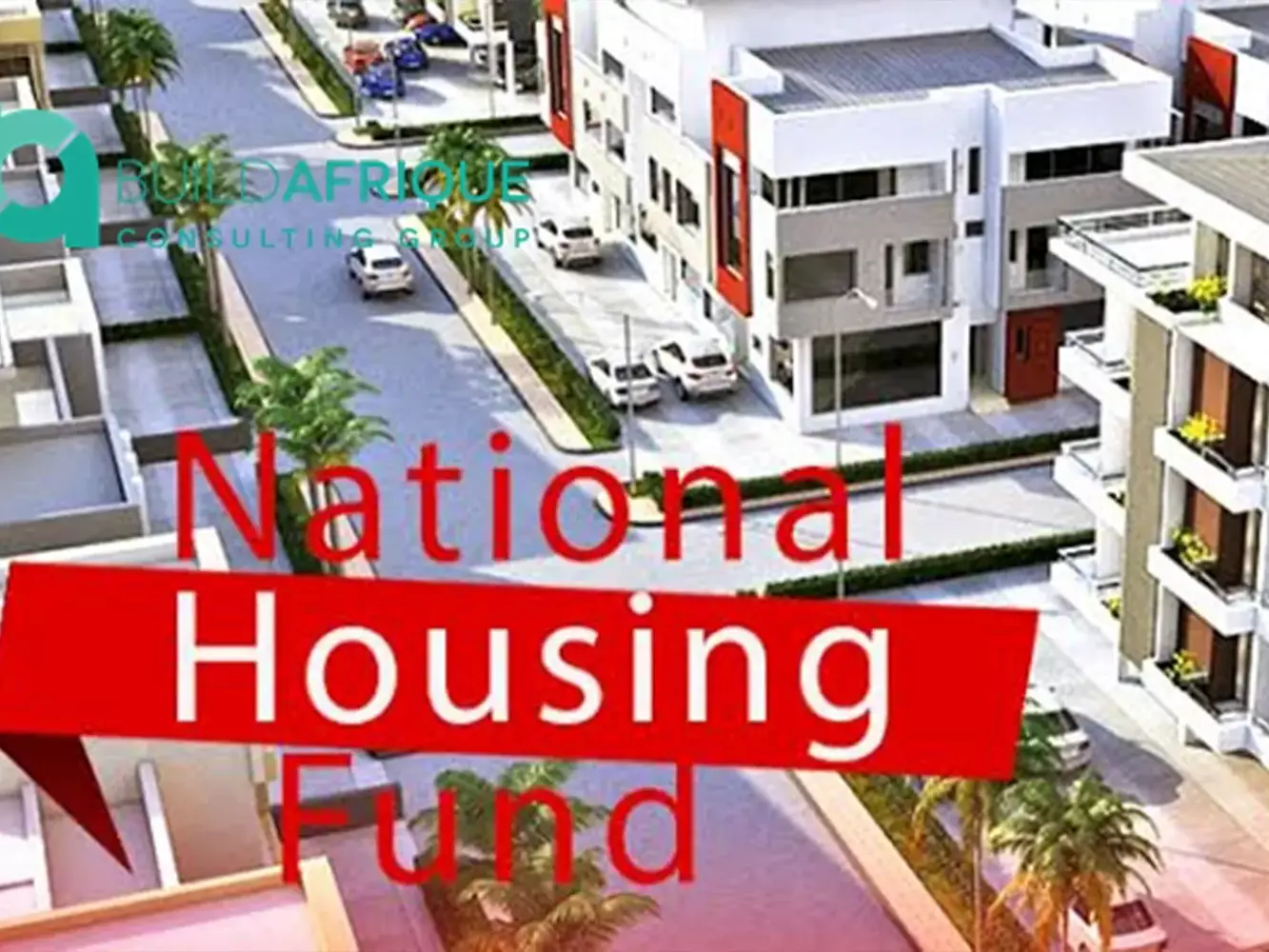Insights
Emerging Trends in Kenya Real Estate for 2018 and Risk Management measures for Investors

The world of real estate is in continuous flux, receding and flowing with today’s global events; technological advances, and changes in the financial market. Amidst all the ambiguity, what is for certain is that change is inevitable. It is hard to find a part of real estate industry that has not been affected by these elements. Whether one is buying a home or developing real estate property, it is essential to know that the status quo is shifting. Developers, in particular, are faced with the overwhelming task of keeping up with all the recent trends. It can be difficult to sift through the latest news, but even more so, the difficulty is in determining which trends are significant and here to stay. In this article, we focus on the emerging trends in Kenya’s real estate in 2018 and some of the risk management measures for investors.
Shift to Affordable Housing
A low-cost housing boom is gathering pace in Kenya as developers and investors begin to shift their attention to this segment of the market previously viewed as unprofitable. Foreign investors like the US-based Milost and India’s Tata Housing Development are top among the financiers and developers that have recently signed contracts with local developers in low cost and medium cost housing construction agreement worth billions of shillings. Additionally, the government of Kenya has pledged to deliver a million decent and affordable houses to working Kenyans using subsidy programs such as credit and adoption of low- cost building technology.
As investors venture into affordable housing, one of the risk factors that they are likely to face is cost overruns. To avoid cost overruns, developers need to implement lean construction techniques from planning to the allocation of teams, control costs in real time to identify potential overruns immediately and avoid a scope creep. This is because absorbing the cost of little deviations from the original scope may turn into a general practice which could consequently affect the total amount spent on a project. The best policy is to effect a change order for every addition made on the project.
Millennial Housing: Design diversification for an all-inclusive demographic
The term Millenials applies to individuals who were born after 1980, and reached adulthood with the turn into the  21st century. Statistics show that Millenials make up to 58 percent of Kenya’s current workforce and it is projected that by 2020, they will make up to half of the global workforce, and 88 percent by 2030. These statistics demonstrate that the millennial housing market is a significant part of the middle-income market as young people, as early as 24 years of age, continue to invest in real estate property, more so, land for development. Recent research also shows that this age group is the reason why stakeholders and developers in the built sector are upbeat about every move the industry is taking owing to the generation’s paradigm shift in demand and diversity of preferences when it comes to housing. Reports by Knight Frank and Hass Consult reverberated similar details in 2017 as the demand for residential units with functional but stylish spaces rose, occupiers being the said generation. The millennial housing market is vital for real estate developers as this segment is the prime investor target for value-added upgrades. As the generation population grows and Generation Z leaves the cradle into young adulthood, investors will need to target first-time buyers and not just repeat buyers. One of the major concerns in design diversification is relevance and affordability. Investors will need to find an equilibrium between modern architectural designs and the cost of property and rental prices so as to maintain the focus on millennial buyers.
21st century. Statistics show that Millenials make up to 58 percent of Kenya’s current workforce and it is projected that by 2020, they will make up to half of the global workforce, and 88 percent by 2030. These statistics demonstrate that the millennial housing market is a significant part of the middle-income market as young people, as early as 24 years of age, continue to invest in real estate property, more so, land for development. Recent research also shows that this age group is the reason why stakeholders and developers in the built sector are upbeat about every move the industry is taking owing to the generation’s paradigm shift in demand and diversity of preferences when it comes to housing. Reports by Knight Frank and Hass Consult reverberated similar details in 2017 as the demand for residential units with functional but stylish spaces rose, occupiers being the said generation. The millennial housing market is vital for real estate developers as this segment is the prime investor target for value-added upgrades. As the generation population grows and Generation Z leaves the cradle into young adulthood, investors will need to target first-time buyers and not just repeat buyers. One of the major concerns in design diversification is relevance and affordability. Investors will need to find an equilibrium between modern architectural designs and the cost of property and rental prices so as to maintain the focus on millennial buyers.
Technology in Real estate
In the wake of growth and competition in the real estate industry, technology has played a significant role in marketing, sales, and brand promotion. Social media, email marketing tools, and leads capture tools are all advances in Real estate business. However, the built sector is set to make a grand stride this year as the country prepares to go hi-tech with Block Chain technology. Land Layby Kenya is the real estate and Fin-tech Company that is set to roll out the minimum viable product (MVP) for Africa’s first multinational blockchain powered land registry. The platform, which will be accessed by the Harambee Token digital utility key, is expected to eliminate transaction costs, intermediaries in land transfers, and decrease transaction time. Blockchain contains a specific and verifiable record of transactions ever made which will alleviate the risk of fraud and double spending. Additionally, crypto economics, which will be built into the token will provide incentives for participants to continue endorsing blocks, thus reducing the likelihood of external influencers who may want to alter previously recorded registers. Other tech trends that are expected in real estate worldwide include the use of Artificial Intelligence (AI) and enhanced mobile applications. While AI will be used in specific target marketing, improved mobile applications will cater for the off-site working structure, thus increasing productivity and organization. The growing challenge and risk in technology use is cybercrime. As the adoption of technology grows, equal measures should be adopted to enhance the security of company data, and client information.
Reinvention of Commercial property space
Kenya is estimated to have a total of at least 20 co-working spaces, a factor that can be attributed to the increasing focus on tech innovation, startups, and incubation hubs. The way of doing business is changing faster than ever  before as growing amount of work is done online, and telecommunicating is becoming more practical and common. While leasing commercial office space is still an integral part of doing business, the changing nature of the workforce, some techniques for reinventing the office have become popular recently.
before as growing amount of work is done online, and telecommunicating is becoming more practical and common. While leasing commercial office space is still an integral part of doing business, the changing nature of the workforce, some techniques for reinventing the office have become popular recently.
Other than co-working spaces, another example is the public office landscape (shared workspace). The concept is based on the principle that creativity and collaboration are the fundamental benefits of typical office space. To maximize the benefit of this principle, the Public Office Landscape design emphasizes on two fundamental principles. First is to encourage teamwork by putting together employees working on the same projects, while second is to increase ways how employees work together by creating extra creative spaces to work in, including open air ‘social pods’ and ‘café’ style tables. Ironically, the insistence on collaborative principle instead of profit squeezing is one of the aspects that runs the most significant risk to investors. Co-working spaces are only beginning to gain popularity in the Kenyan Commercial property market, and it may take time for these areas to be filled. In some developed countries, where co-working spaces are popular, investors still record occupancy levels as low as 40 percent. Co-working space owners in Kenya will need to develop marketing strategies with pre-determined targets for the spaces to yield optimum returns. Another risk to expect is crime owing to the interaction of unknown members. Investors will need to be selective with members while at the same time invest in security to efficiently manage co-work spaces.
Student accommodation
In developed markets, student housing has attracted attention as a resilient asset class with the ability to drive returns even during a depressed macro-economic environment. In Kenya however, investor attraction has been contributed by the acute shortage of student accommodation which currently represents 40 percent of Kenya’s  housing shortage. In an attempt to bridge the gap, Acorn Group and the UK –based Helios have joined hands to develop 3800 hostels at a cost of $ 68 million. The project’s first beneficiaries will be USIU – Africa, DayStar, and Strathmore Universities. Additionally, Kenyatta University is set to start construction of hostels in mid-2018. The project, which is estimated to cost $ 48 million, will be developed by a New York based private equity firm through a public private partnership.
housing shortage. In an attempt to bridge the gap, Acorn Group and the UK –based Helios have joined hands to develop 3800 hostels at a cost of $ 68 million. The project’s first beneficiaries will be USIU – Africa, DayStar, and Strathmore Universities. Additionally, Kenyatta University is set to start construction of hostels in mid-2018. The project, which is estimated to cost $ 48 million, will be developed by a New York based private equity firm through a public private partnership.
The demand for student accommodation in Kenya is expected to grow as more universities open satellite campuses in counties. Moreover, admissions of students into local universities have doubled since the inception of the double intake program further driving the demand for accommodation. While student housing is highly attractive, it is with noting the traditional operational challenges and risks associated with it. Historically, student occupants have a high turnover rate and cause above average wear & tear on their units. This leads to higher renovation costs compared to other tenants. Also, student housing has a lower level of resale value compared to other asset classes due to its limited use. Investors need to ensure that these accommodations are located in prime areas with high resale value or opportunity for growth. Similarly, to minimize the level of wear and tear, investors may need to adopt the use of built in furniture and other facilities that force students to improvise in rentals.
As technology evolves, new innovations emerge, and the way of doing business in Kenya changes. The best investors in the property market are those who will differentiate themselves by specialization and paying attention to the small nuances which are instead ignored but contribute significantly to the grand scheme of matters real estate.
This article is written by Buildafrique Consulting Group; a Kenya Real Estate Consultant and Development Solutions provider that offers End-to-End Financial, Development Management, and Investments Solutions to help Developer, Investors, and prospective Home Owners manage risks and realize value for their investments in a fast evolving Real Estate market.
Contact Us today for Solutions to your Challenge in Real Estate Investments and Project Development:
- Email: [email protected]
- Tel: +254 722 474285 / + 254 20 8058493
- Website: www.buildafrique.com
Related
Insights
Feasibility Study Consultants and Market Research Firm in Kenya
Buildafrique provides Feasibility Studies and Market Research services in Kenya, as a…






